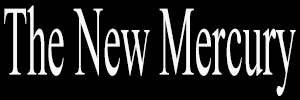
Analysis by Kyle A. Lohmeier
While most people, rightfully, saw Monday’s Supreme Court Ruling on “hate speech” as an important win for basic liberty and common sense, which it was, what I found more interesting is how the case itself reveals the very nature of government.
Government is cancer. As such, there is no good amount of government to have just like there is no good amount of cancer to have, other than “none.” Once government, like cancer, attaches itself to something, it degrades and destroys the functionality of whatever it’s attached to. Government, like cancer, also tends to want to grow and spread to other things once it has established itself anywhere. The constitution, as ratified, created a very small federal government. Some two centuries of metastasis later, and we now have terminal-stage government infecting every major and minor aspect of society.
Monday’s supreme court ruling allows us to examine one particular tumor, isolated in a Petri dish, away from the myriad other cancers afflicting the corpse that is the USA.
“Alito said that trademarks historically were used by businesses to identify their products. People and companies can seek to register their trademark with the federal office. Doing so gives them extra legal protection against others using the same mark,” David G. Savage wrote for the L.A. Times, explaining why trademarks were developed in the first place.
Like many government functions, the original purpose of the Patent and Trademark office was simple and innocent enough: give businesses a way to register their marks and prove who has initial claim to them. The constitutional basis for the patent and copyright office is found in Article 1, Section 8, which describes the powers of congress.
“The Congress shall have Power…To promote the Progress of Science and useful Arts, by securing for limited Times to Authors and Inventors the exclusive Right to their respective Writings and Discoveries,” reads the relevant passage of the constitution.
Simple, right? And, I’m sure that for many years the Patent and Trademark Office did just, and only, that. But, government is cancer, and so the office and its simple task began to grow in scope to include making value judgements about the names and logos for which people are seeking copyright protection. Namely, those judgements determined whether or not something was “offensive” and therefore not entitled to protection.
“Since 1946, the U.S. Trademark law has included a provision that barred the government from registering trademarks that may ‘disparage’ people or groups,” Savage wrote.
Now, quite possibly in 1946, a nation that had just finished putting its own people into internment camps for being of Japanese descent was a bit sensitive to the racial stereotypes that it had played up for propaganda purposes during the war. As such, one can see how the government might have thought such a provision was a good idea. Some seventy years later, however, and the law of unintended consequences, the cancerous nature of government and the abject insanity of the social justice movement has turned that provision, however well-intentioned it might have been, into a farce.
Enter the plaintiffs for Monday’s SCOTUS ruling: A group of guys of Asian descent from Portland, Oregon who were seeking to trademark their band’s name: “The Slants.”
In almost Pythonesque fashion, the band’s request was denied.
“An examiner at the U.S. Patent and Trademark Office did not share in the joke and refused (band-member Simon) Tam’s request to trademark the band’s name. The examiner cited dictionaries that defined ‘slants’ or ‘slant-eyes’ as a derogatory or offensive term,” Savage wrote.
So, to review, the government decided a band of Asian guys can’t register and protect the name of their band because the name is offensive to Asians. Well, some other Asians; not those in the band, obviously.
Painted into a corner by the cancerous nature of government and the mindless absurdity of the social justice movement, SCOTUS somehow managed to make the right call, and unanimously so.
“Rather than second-guess that judgement, the Supreme Court instead struck down the part of the law that called for making such assessments. ‘We now hold that this provision violates the Free Speech Clause of the First Amendment… It offends a bedrock First Amendment principle: Speech may not be banned on the ground that it expresses ideas that offend,’” Savage quoted Justice Samuel A. Alito Jr. As saying.
Savor this one, dear readers; it is very rare that the government ever reduces its own power in any way. This ruling takes away a huge amount of power from the Patent and Copyright Office, effectively giving the tumor a massive and effective does of chemotherapy. Our nation is still terminally-ill with government and in the end, it will destroy us all. When facing inevitable doom, I find it helps to take solace in all such happy events as this, however rare and small they are.

Leave a Reply